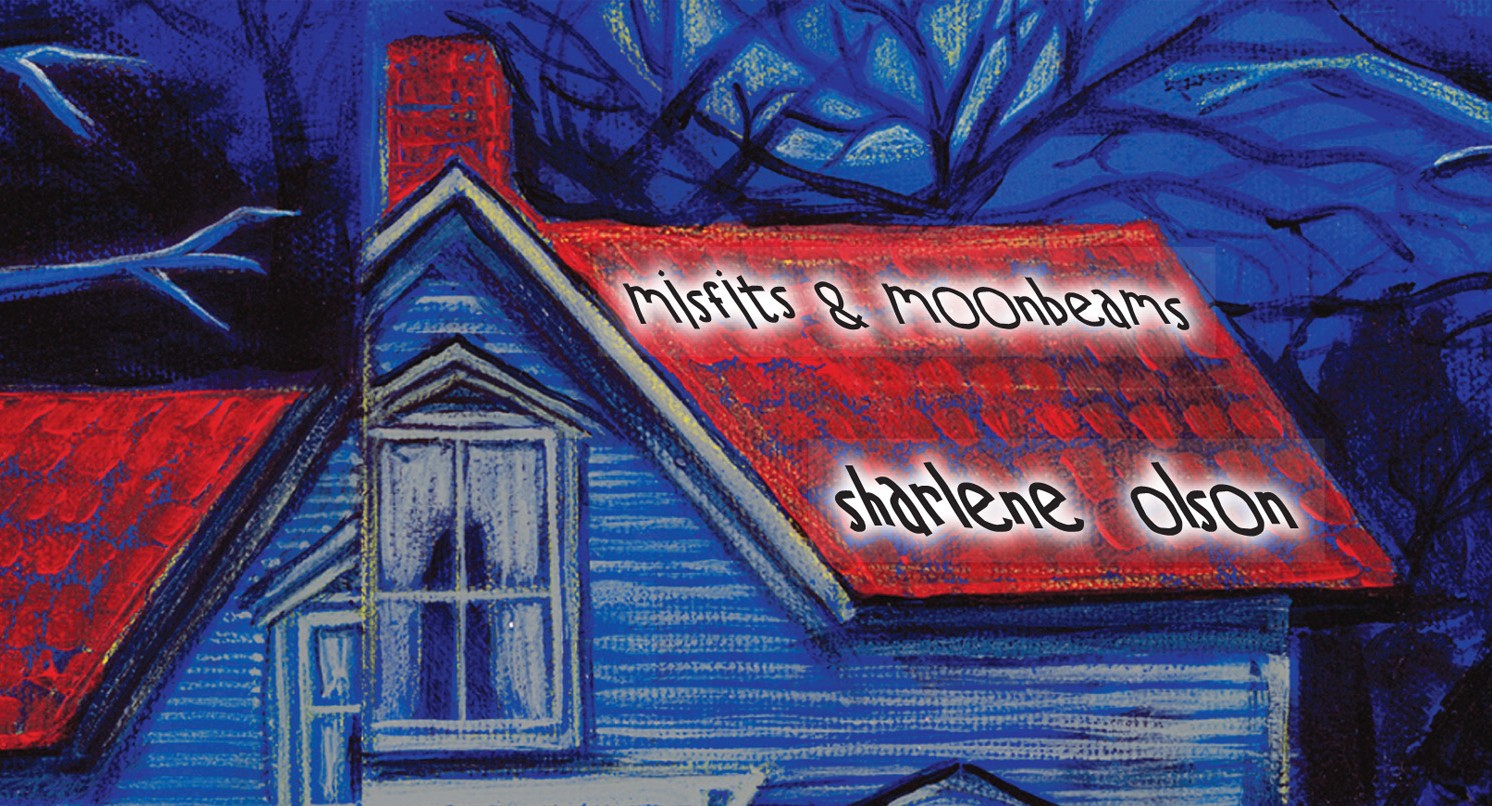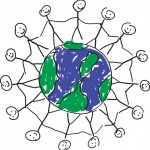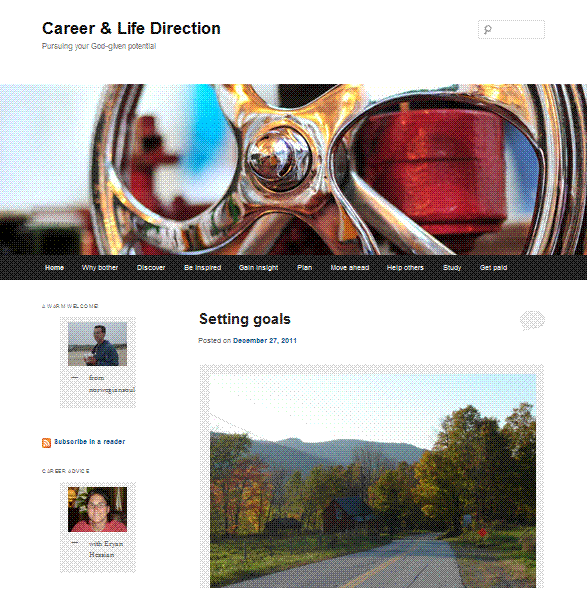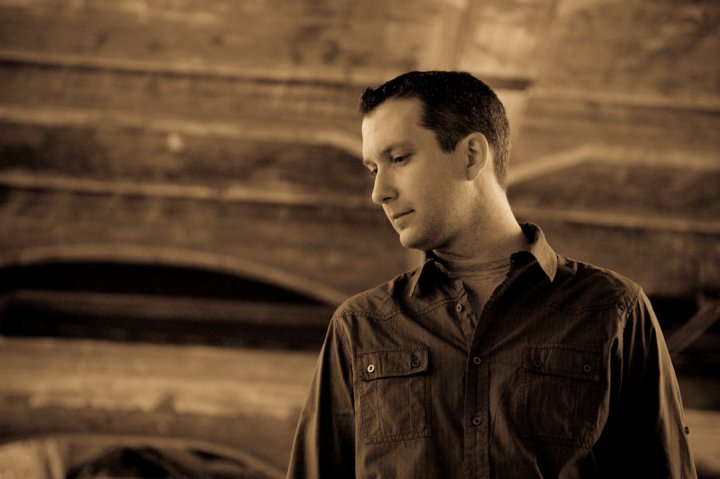Your distinct identity
- At December 10, 2013
- By Nathan
- In Effective living
 0
0
Who could possibly have a problem with the declaration that each person has a distinct identity? What could be so bad about that? How would this observation cause harm?
And yet, from what I have recently discovered via Dallas Willard, some people strongly oppose this message because it implies that you and I are unable to completely define ourselves; and apparently, they don’t like that. Go figure.
No one is invincible or infinitely flexible. And people know that. Deep down, they know.
If we are honest, though, perhaps all of us have felt this way. We want to be what we know we are not. We feel inclined to do what we suspect we should not. At times, we desire to live in a world without any personal limits or boundaries. Oh, we want other people to have boundaries so we don’t get hurt…as we go about doing our own thing. If only life worked that way.
For some reason, we feel that the options available to us are not near enough. It is so difficult to be creative and content with what we have been given. And so, human beings have a bizarre tendency to keep pushing and pushing until we can finally impersonate our Creator. Would you agree?
But a small dose of reality quickly reminds me that I am never going to be a professional ballerina or a flamboyant extrovert. Not in a million years. And no matter how hard I try. This is definitely not going to happen. Admittedly, ridiculous observations like this are not controversial and don’t tend to get people worked up. The I-will-define-myself-however-I-please talk usually has specific moral and often sexual implications.
Anyone who wants to live in an “anything goes” world will not be happy being reminded that there are limits and lines which are not a good idea to cross. Especially since this will likely also contradict and challenge their naturalistic ideology. Be warned: Some people really take offence if you mess with their understanding of the Secular faith. Don’t expect a friendly conversation or dialogue.
But does anyone who pushes the limitless self-definition position (atheist or otherwise) really believe what they say? I doubt it. Not unless they’ve had too much to drink the night before or the music is turned up really loud. No one is invincible or infinitely flexible. And people know that. Deep down, they know.
And yet, the claim that God created each one of us for a specific purpose – and that it is a good idea to try to figure out what that might be – is now taken to be an oppressive statement in some circles. For all I know, at this very moment some self-righteous lawyer is working behind the scenes to censor such claims as contrary to human rights. So I might as well finish this post while I still can.
A question to consider: Where do you suppose most of the freedom is to be found in the world today?
Is it over in the old Soviet Union, where oppression and control and corruption and atheism runs rampant? Hardly. Well, how about the part of the planet that can’t be mentioned without the threat of violence? Would you like to move your family over there? Then, of course, there are all the little liberal universities here in the West to consider; places where young people are encouraged to think for themselves as long as they believe what they are told. Have you ever wondered why a typical college is filled with post-modern clones?
No, it hasn’t been all sweetness and light in the West to be sure. But the oppression that has sometimes taken place in the name of Christianity pales in comparison to what happens when another gospel – and particularly a naturalistic gospel – firmly takes its place. If you doubt this, attempt to do that math. Or try to picture what life might be like for your great-great-grandchildren.
Sure, I can sympathize with anyone who has been stamped with some sort of label or definition which served to distort their true identity. It is sad to hear about such things. It really is. And we have probably all done this at one time or another. This type of distortion and abuse happens everywhere – even in church. But again, this only really matters if you and I have a firm identity in the first place.
If it’s okay to define yourself however you please, what is to prevent someone with more power from defining you however they please? And if it comes down to who can yell the loudest, who do you think will win?
© Career & Life Direction 2013. All rights reserved.
Free at last
- At January 11, 2012
- By Nathan
- In Meeting Needs
 4
4
 “You can’t make me hate you.” This stunning sentence sticks in my mind after skimming through a book by Richard Wurmbrand, founder of Voice of the Martyrs. There is already more than enough sorrow hanging in the air, from the previous post, so I won’t go into his situation in great detail. But this Romanian pastor suffered greatly. He was at the mercy of his communist captors, and they offered him none.
“You can’t make me hate you.” This stunning sentence sticks in my mind after skimming through a book by Richard Wurmbrand, founder of Voice of the Martyrs. There is already more than enough sorrow hanging in the air, from the previous post, so I won’t go into his situation in great detail. But this Romanian pastor suffered greatly. He was at the mercy of his communist captors, and they offered him none.
But at least on one occasion, he still responded to his enemies with these words: “You can’t make me hate you!”
A Christmas carol, penned during the Civil War in the USA, suggests that this is not a common human response to pain. “I Heard the Bells on Christmas day” contains this familiar line: “But hate is strong and mocks the song of peace on earth, goodwill to men.” How many people reading this can honestly say that they have never been overcome, even temporarily, by this powerful emotion? Confinement. Injustice. After too much of it, for too long, even righteous anger can give way to rage. Hate is strong.
Read More»

































